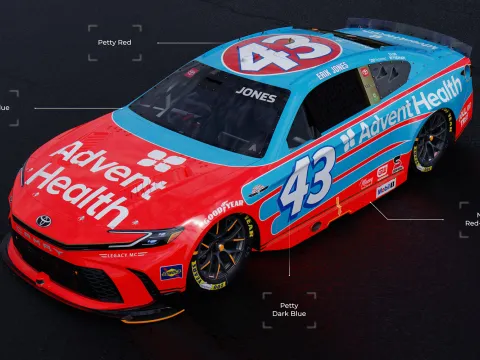- AdventHealth

If your child has congenital heart disease, we know that you put your heart and soul into helping them live their best life. You stop at nothing to get them the best medical care, and you’re doing everything in your power to help them live each moment of their childhood with the best possible health — in body, mind and spirit.
While congenital heart disease can affect your child’s growth and development, there are some things you can do to help them thrive. And we’re here to support your whole family with the tools you need.
What Is Pediatric Congenital Heart Disease?
No one wants to hear their child has pediatric heart disease, and we understand the overwhelm you must feel. Let’s start with helping to breakdown what having pediatric congenital heart disease means.
What causes congenital heart disease? Pediatric congenital heart diseases are structural, or birth defects that affect the heart and its blood vessels. Congenital means the disease is present at birth.
A common question we hear is, “What are the types of congenital heart defects? Here are some of the various types of congenital heart defects that can impact children:
- Atrial Septal Defect: A hole in the wall between the upper chambers of the heart
- Ventricular Septal Defect: A hole in the wall between the lower chambers of the heart
- Patent Ductus Arteriosus: Failure of the ductus arteriosus, a blood vessel connecting the pulmonary artery and the aorta, to close after birth
- Tetralogy of Fallot: A collection of four heart defects that affect the structure of the heart, leading to poor blood oxygenation
- Transposition of the Great Arteries: The positions of the pulmonary artery and the aorta are switched, leading to poor circulation
- Coarctation of the Aorta: Narrowing of the aorta, which can restrict blood flow to the lower part of the body
- Aortic Stenosis: Narrowing of the aortic valve, which can block blood flow from the heart
- Pulmonary Stenosis: Narrowing of the pulmonary valve, restricting blood flow from the right ventricle to the pulmonary artery
- Hypoplastic Left Heart Syndrome: Underdevelopment of the left side of the heart, leading to challenges in pumping blood
- Ebstein's Anomaly: Malformation of the tricuspid valve, which separates the right atrium and right ventricle
- Double Outlet Right Ventricle: Both the aorta and the pulmonary artery connect to the right ventricle
- Truncus Arteriosus: A single large vessel arises from both ventricles, instead of the usual separate aorta and pulmonary artery
Pediatric heart disease conditions can vary in severity, with treatment options ranging from medications and surgeries to other interventions depending on the specific defect and its impact on your child's health.
Treatment plans are typically case sensitive and unique to everyone. Advancements in medical technology and surgical techniques continue to improve outcomes for children with congenital heart diseases.
Developmental Milestones
Children with congenital heart disease, which is present at birth, may grow or develop more slowly than other children. Because of their condition or factors related to it, it’s possible that your child looks younger compared to other children their same age.
It’s also common for children with congenital heart disease to have delays in their physical development, leading to a lower-than-average height and weight with delayed milestones, such as rolling over, sitting up, walking, talking and even potty training.
Their progress can be influenced by many reasons, including genetic abnormalities that affect motor development, inadequate nutrition and frequent, prolonged hospital stays and procedures.
Supporting Your Child With Congenital Heart Disease
We know you’re rooting for your child with all you have. It’s important to focus on the positive and what your child can do rather than their limitations.
Talk to your child’s pediatrician, cardiologist and team of specialists to develop a personalized plan that outlines safe ways to support your child’s physical, social, cognitive and emotional development.
Playful Interactions
Touching and talking to your child can help soothe and provide reassurance, especially in the hospital or right after surgery.
Physical Activity
Always follow your child’s doctor’s orders for physical activity; encourage the activities your child enjoys and tolerates well.
Sensory Play
Provide your child with a variety of toys and objects that stimulate the senses of hearing, vision, touch and smell, including while they’re in the hospital.
Bring items from home or ask the hospital staff if they can provide safe, stimulating objects for your child. Many hospitals have special departments designed to help nurture your child's emotional and physical well-being in the hospital, including child life specialists.
Normalize Life
Let your child take part in everyday family activities as much they can tolerate. Children also learn new developmental skills from interaction with siblings and friends.
Meeting Nutritional Needs
Good nutrition supports physical, social and emotional development of every child. But for children with congenital heart disease, nutritional needs can be greater. This is because:
- The heart must pump faster to meet the body's unique demands
- The body's metabolism is also faster; your child likely needs extra calories to maintain weight and grow
- Your child may not absorb nutrients properly because their intestines aren't getting enough oxygen
You might be wondering, what are the signs and symptoms of congenital heart disease in infants? Since your baby’s body might be working harder to compensate for their heart defect, they may become tired quickly. Infants can get sleepy during feedings or even sleep through them.
Older children might pick at their food, say they are full after a few bites, or ask for rest breaks. Even though your child needs more calories to maintain weight, they may be too tired to eat.
If you’re experiencing any of these issues, it’s important to work with your child’s team of doctors, nurses and nutritionists to develop a plan to make sure your child gets enough nutrition.
Ways to Boost Your Child’s Nutrition
Here are some helpful tips to enhance your child’s nutrition and well-being.
Nutritional Supplements
You may be able to add special nutritional supplements to formula or pumped breast milk to increase the number of calories in each ounce. These let your baby drink less, but they still get enough calories to grow. High-calorie drinks are also available to boost older children's nutrition.
Talk to your child’s pediatrician or cardiologist about products you’re considering so they can ensure the products are safe for your child.
Supplemental Tube Feedings
Tube feedings can either supplement or take the place of regular feedings in a child that needs to take in more calories and nutrients to grow. Your child’s health care provider might recommend tube feedings through a small, flexible tube that passes through the nose, down the esophagus, and into the stomach.
In some cases, where tube feedings may be needed more long-term, the doctor might put a tube directly into the stomach through the belly. Infants may be able to drink what they can from a bottle, and then are fed the remainder through the feeding tube. Infants who are too tired to bottle-feed can get their formula or breast milk through the feeding tube alone. Older children may need tube feedings at night and eat normally during the daytime.
High-Calorie Foods and Snacks
Offer your child nutritious foods and snacks that are high in calories and nutrients whenever possible. Nutrition labels can help you understand the calorie content of foods. For instance, some baby foods have very few calories, while others have many.
Healthy foods such as vegetables don’t have a lot of calories, but adding some melted cheese or dip can boost the calories.
Limit foods that have empty calories, such as foods that are packed with sugar and few nutrients like soft drinks, chips and fast foods. Instead, focus on offering a balanced diet, as well as one higher in calories. Ask your child's doctor, nurse, or nutritionist for more creative, healthy ideas tailored to your child’s needs.
Thriving Into Adulthood
Another common question is, “What is the life expectancy of a child with a congenital heart defect?” The good news is, great advances have been made in the treatment of pediatric congenital heart disease, and many children are thriving well into adulthood.
However, it’s important to keep in mind that many complex heart defects often need multiple medicines and other lifelong therapies. In addition, repeat surgeries or procedures may be needed.
As such, it’s normal to find challenges as your child gains more independence with each life stage. Some of the things that are important to discuss as a family and with your child’s medical team can include:
- Being independent
- Finances
- College and career choices
- Living on their own
- Maintaining health coverage
- Marriage and family planning
- Travel or relocation
Your Partner in Whole Health for Every Life Stage
Since your child will need lifelong regular follow-up care, it’s important to find a trusted medical center offering adult congenital cardiac care.
Learn more about AdventHealth’s network of advanced Heart and Vascular Care.


